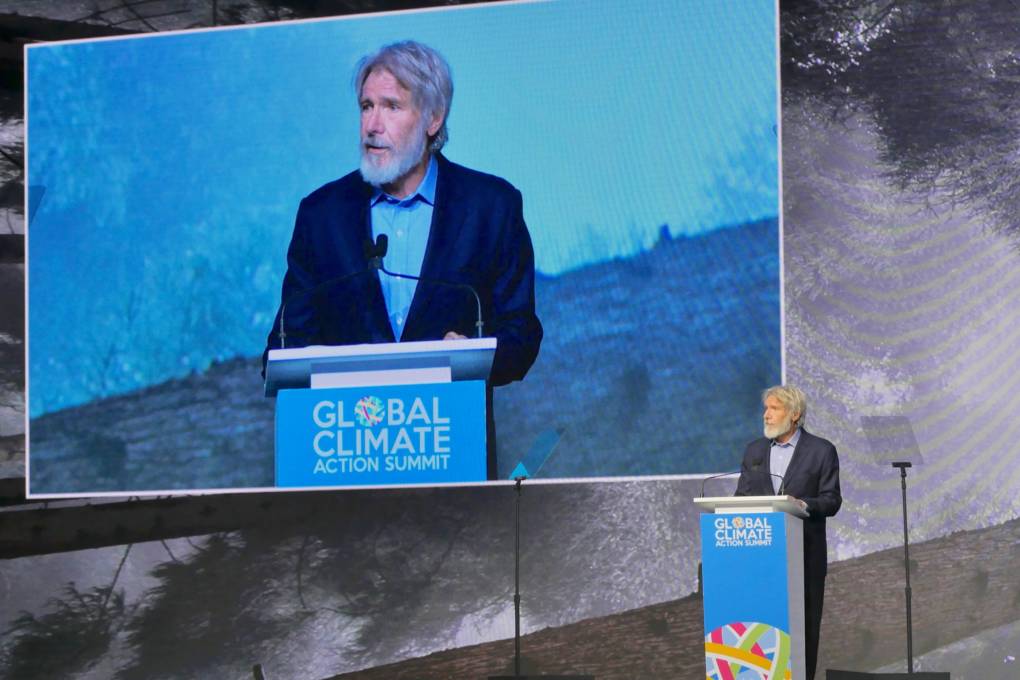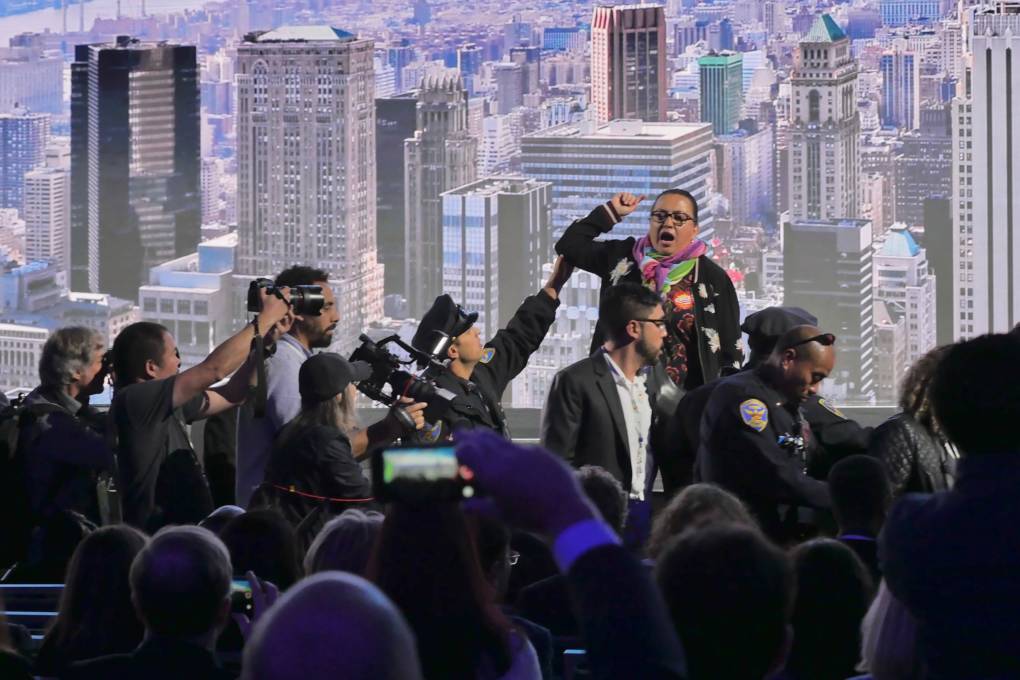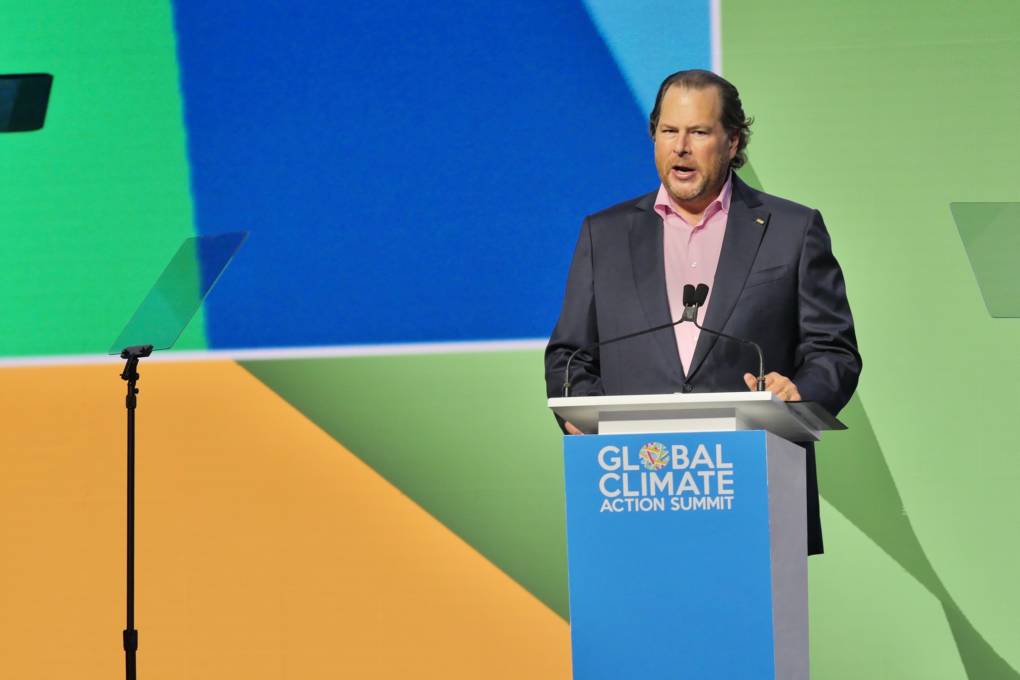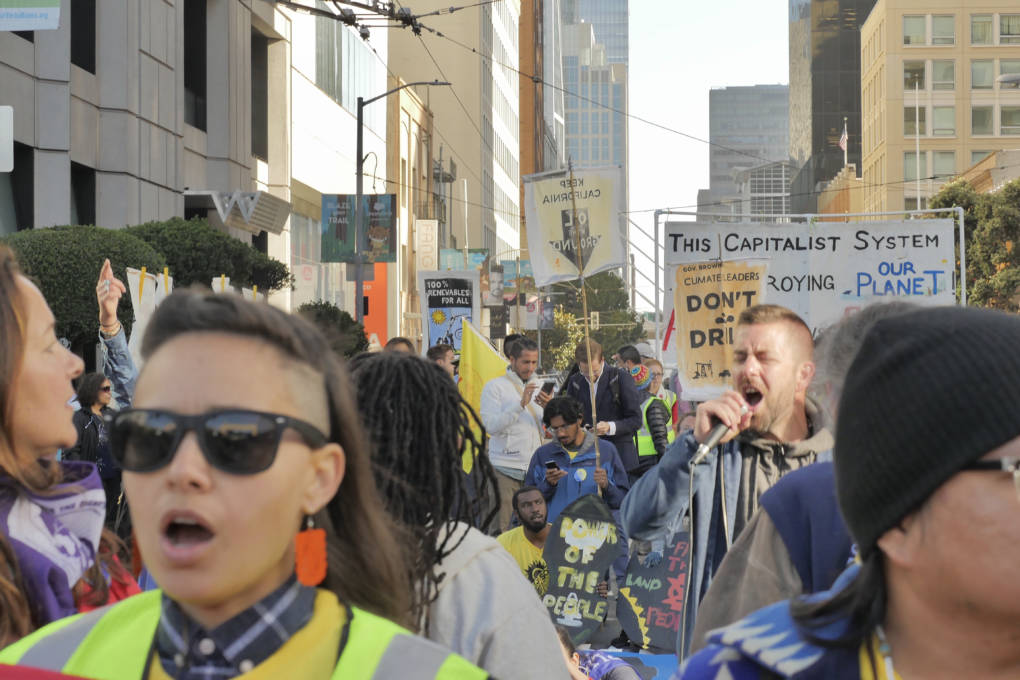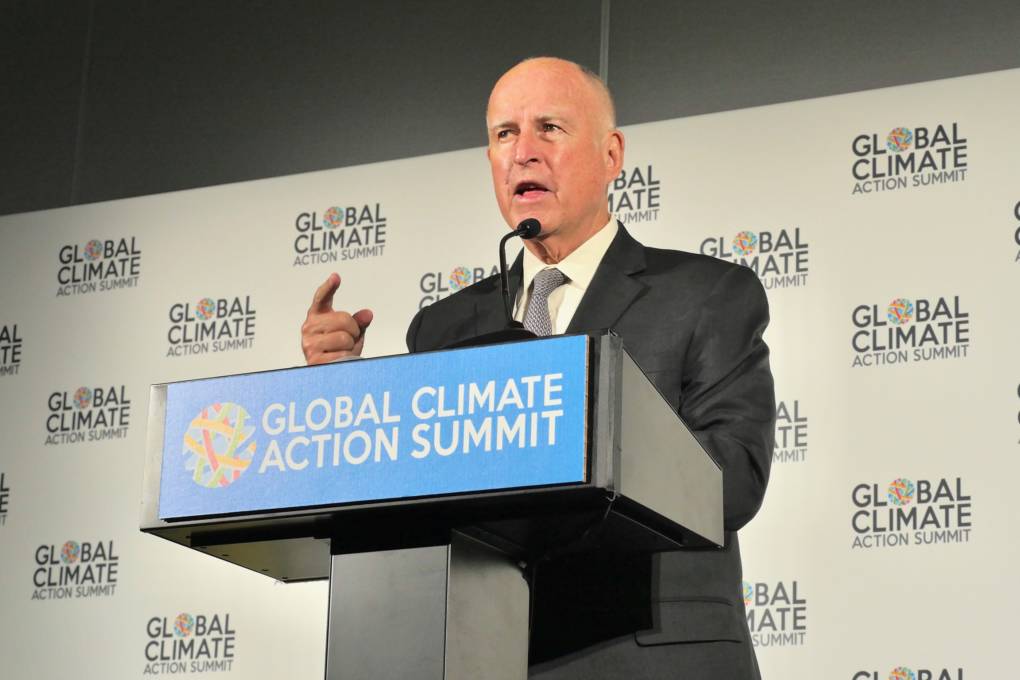KQED Science will be following the summit closely so be sure to check our page for the latest updates.
UPDATE: 2:20 p.m., Fri.
Governor Jerry Brown is closing the conference, announcing that California will launch its “own damn satellite” to track pollution. California is working with San Francisco-based Earth imaging company Planet Labs to develop the satellite.
“With science still under attack—we’re under attack by a lot of people, including Donald Trump—and with the climate threat growing, we’re going to launch a satellite—our own damn satellite to figure out where the pollution is and how we’re going to end it.”
Planet, founded by ex-NASA scientists, operates the world’s largest network of satellites.
The idea seems to be to catch major polluters red-handed, naming and shaming them. A Big Brother for good?
UPDATE: 1:50 p.m., Fri.
A representative for ING just announced that the banking institution is steering its lending portfolio towards keeping the global temperature rise to “well below two degrees Celsius,” in support of the Paris agreement.
“This makes us the first bank to commit to science-based climate scenarios in our business strategy,” she says, adding, “We will do this with pioneering science-based methodology.”
UPDATE: 1:35 p.m., Fri.
Now taking the stage is Carlos Manuel Rodriguez, Costa Rica’s Minister of Environment and Energy. The country is striving to become the first carbon-neutral nation by 2021.
Rodriguez says that Costa Rica is working on a massive decarbonization plan that will impact several economic sectors.
Costa Rica, which abolished its army in 1948, amended its constitution in 1994 to include a right to a healthy environment for its citizens. Today, the tiny Central American country gets nearly all of its electricity from renewable sources, with 80 percent coming from hydropower.
Vox reports that Costa Rica can power itself for months at a time relying solely on renewables, running for a record 300 days on clean energy in 2017.
UPDATE: 1:19 p.m., Fri.
Now speaking, New York City Mayor Bill de Blasio, who just announced that New York City will invest two percent of its pension assets, or $4 billion dollars, in climate solutions.
“The signs couldn’t be clearer, we could lose our planet.”
He notes that in January, NYC became the first city to begin divesting its pension assets from fossil fuels.
Mayor Bill de Blasio: “We will act when nations fail, including our own.”
UPDATE: 12:50 p.m., Fri.
Internationally acclaimed primatologist and anthropologist Dr. Jane Goodall is discussing the importance of protecting rainforests. Goodall stars in the new NatGeo documentary “Jane,” which has been nominated for seven Emmy awards.
UPDATE: 12:30 p.m., Fri.
A start-up from Stanford University won the California Climate Cup. The competition received more than 100 submissions for different climate-focused business plans. Solstice Energy Solutions took home the prize.
The company uses big data to analyze energy use, coordinating different energy sources like solar and energy storage.
UPDATE: 12:18 p.m., Fri.
A representative for a new initiative called “Lawyers for a Sustainable Economy” is speaking.
Nine top law firms recently launched the project, which will offer pro-bono legal support to entrepreneurs and community-based non-profits to help advance their work in key climate and sustainability issues.
The firms have pledged to commit approximately $15 million of funding by 2020. Facilitated by Stanford Law School and Stanford’s Precourt Institute for Energy, the program will connect participating law firms with potential clients.
UPDATE: 11:38 a.m., Fri.
Speaking after Garcetti is Pasquale Romano, president & CEO of ChargePoint, operator of one of the world’s largest charging station networks for electric vehicles. Romano says that his company is planning a near 50-fold increase in its global network of charging spots by 2025.
Romano: “The electrification taking place today is as fundamental as the internal combustion engine was.”
The company is planning to add 2.5 million loading stations to its network. Romano says the world of mobility is on the “cusp of a generational change.”
UPDATE: 11:30 a.m., Fri.
Now taking the stage is Los Angeles Mayor Eric Garcetti.
Los Angeles plans to build 15 new transit lines for the upcoming 2028 Olympics. Garcetti says the city is pledging to buy only zero emission buses by 2025 in the lead up to the Olympics.
Garcetti: “The demand for 80,000 buses is a power signal to the marketplace.”
UPDATE: 11:20 a.m., Fri.
Al Gore is on the main stage, discussing the impact of warming oceans.
Al Gore: “Every night on the nightly news is like a nature hike through the Book of Revelations, and we’ve got to connect the dots between the cause and the effect.”
“We are putting so much heat into the oceans. We’re using the sky as an open sewer. This is literally insane.”
Gore says more than 90 percent of heat goes into the oceans. The cumulative amount of trapping that much heat energy is equal to “400,000 Hiroshima A-bombs, going off every single day.”
“That’s why the temperatures are going up every year. Thousands of high-temperature records have been broken this year.”
Gore goes on to say that the Paris agreement “has pointed the way to a world that is united in taking action. All 195 nations of the world are committed.”
“And yes, I know, Donald Trump made a speech and most of you know that under the law–and we are still in the United States, a nation under law as of right now and will continue to be– and under the law, the first day the US could legally withdraw, is the first day after the next presidential election.”
“And by the way, if there is a new president–excuse me for a moment [laughter]–then, a new president could simply give 30 days notice and we’re right back in the Paris agreement [applause].”
“For anyone who doubts that we, as human beings have the political will to meet our obligations that history is demanding of us, just remember that political will is itself a renewable resource.”
UPDATE: 9:30 a.m., Fri.
The day kicks off with a discussion of oceans. John Kerry speaks on the main stage.
